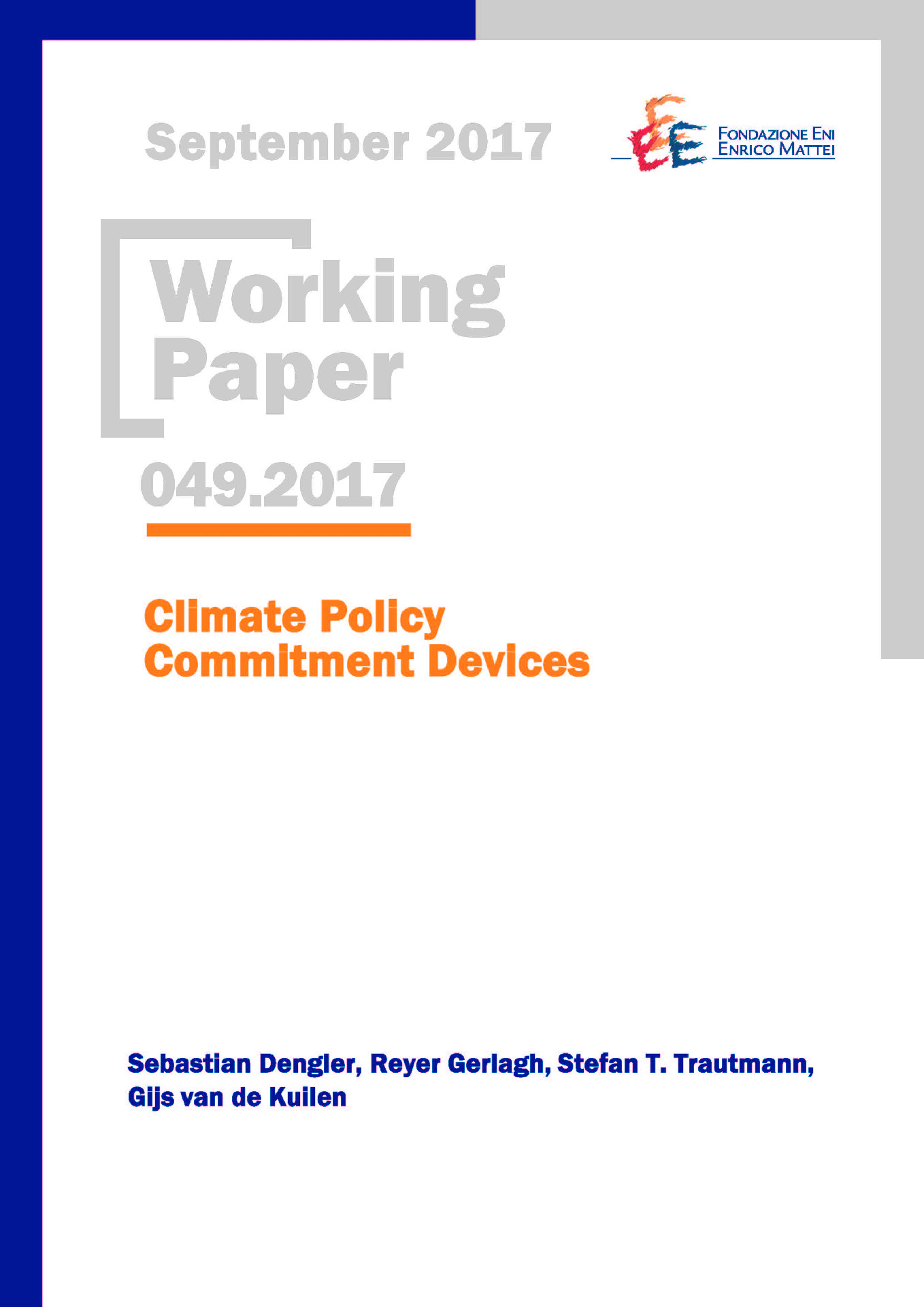Climate Policy Commitment Devices

15.09.2017
Sebastian Dengler (Tilburg University); Reyer Gerlagh (Tilburg University, CREE – Oslo Centre for Research on Environmentally friendly Energy); Stefan T. Trautmann (Tilburg University and University of Heidelberg); Gijs van de Kuilen (Tilburg University)
C91, D62, D99, Q38,Q54
Climate Policy Instruments, Intertemporal Cooperation, Climate Game, Experiments
Economic Theory and Applications
Carlo Carraro
We develop a dynamic resource extraction game that mimics the global multi-generation planning problem for climate change and fossil fuel extraction. We implement the game under different conditions in the laboratory. Compared to a ‘libertarian’ baseline condition, we find that policy interventions that provide a costly commitment device or reduce climate threshold uncertainty reduce resource extraction. We also study two conditions to assess the underlying social preferences and the viability of ecological dictatorship. Our results suggest that climate-change policies that focus on investments that lock the economy into carbon-free energy sources provide an important commitment device in the intertemporal cooperation problem.
***
Suggested citation: Dengler, S., R. Gerlagh, S. T. Trautmann, G. van de Kuilen, (2017), ‘Climate Policy Commitment Devices’, Nota di Lavoro 49.2017, Milano, Italy: Fondazione Eni Enrico Mattei
